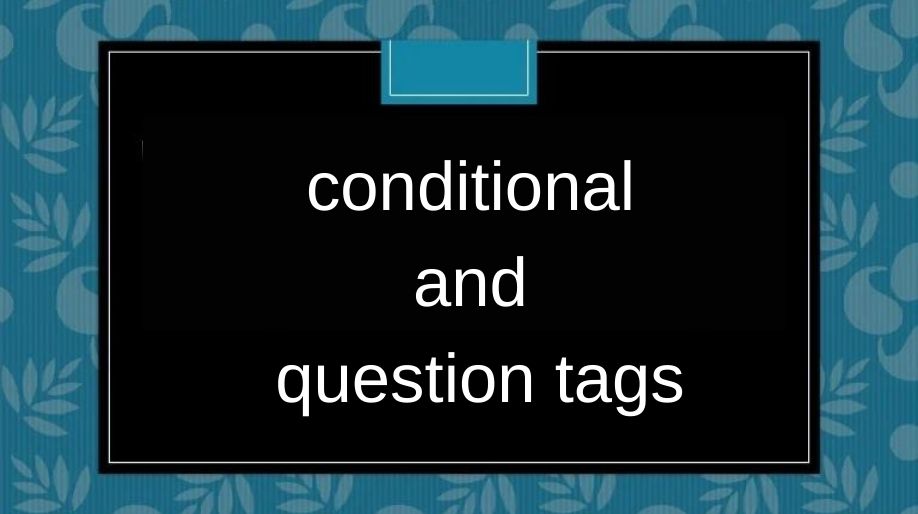
Conditional sentences: When there are two actions happening in a sentence and one action depends on the other, the sentence is called a conditional sentence.
Conditional sentences have two parts: main clause and if/ conditional clause.
Examples,
• You will get the train if you leave now.
In the above given sentence, the main clause (You will get the train) depends on the condition (if you leave now).
Types of conditional sentences:
• Zero conditional sentences
• First conditional sentences
• Second conditional sentences
• Third conditional sentences
Zero conditional sentences: Zero conditional sentences express general truths—situations in which one thing always causes another. In these type of sentences, present tense is used in the both the clauses.
• If you stand in rain, you get wet.
First conditional sentences: The first conditional sentence is used to express situations where the outcome is likely (but not guaranteed) to occur in the future.
• I will invite you to the party if I get selected.
Second conditional sentences: Second conditional sentences are useful for expressing outcomes that are completely improbable or unlikely to occur in the future.
• If you told me, I would help you.
Third conditional sentences: Third conditional sentences are used to explain how the present situation would be different if something different had occurred in the past.
• If you had told me, I would have helped you.
Question tags: In English, a tag question is a unique construction. It begins with a statement and is followed by a mini-question. Question tags are used to obtain confirmation.
• They are coming, aren’t they?
Rules for question tags:
• Sentence and question tag should be in the same tense.
• If the sentence is positive, the question tag will be negative and vice-versa.
• Always use pronoun in the question tag.
• In negative question tag, helping verb will always be in the contracted form.
• There is no contracted form of ‘am not’, hence, ‘aren’t’ is used.
• Everyone, everybody, no one, none, each, every, etc. are singular in form but in question tag plural verb and plural pronoun is used with them.
1. Everyone wants be successful, don’t they?
• In imperative sentences, to express order, ‘won’t you’ is used and to show offer ‘would you’ is used.
2. Have some tea, would you?
• In negative imperative sentences, ‘will you’ is used.
3. Do not call him, will you?
Exercise
Find the part of the sentence that contains a grammatical error.
1. (A) If it rains, (B)/ the grass (C)/ will get wet. (D)/ No error
a. A
b. B
c. C
d. D
2. (A) If you had went to bed (B)/ earlier, you wouldn’t (C)/ be so tired. (D)/ No error
a. A
b. B
c. C
d. D
3. (A) If you had accepted his (B)/ proposal, you would (C)/ have been much happier. (D)/ No error
a. A
b. B
c. C
d. D
4. (A) We haven’t (B)/ got any remuneration, (C)/ haven’t we? (D)/ No error
a. A
b. B
c. C
d. D
5. (A) Have some (B)/ more tea, (C)/ will you. (D)/ No error
a. A
b. B
c. C
d. D
6. (A) There are many (B)/ boys in our school, (C)/ aren’t there? (D)/ No error
a. A
b. B
c. C
d. D
7. (A) I feel, you (B)/ are hungry, (C)/ aren’t I? (D)/ No error
a. A
b. B
c. C
d. D
8. (A) Unless I do not see (B)/ your ticket, I will not (C)/ let you enter the museum. (D)/ No error
a. A
b. B
c. C
d. D
9. (A) If I had money, (B)/ I will have lent (C)/ it to you. (D)/ No error
a. A
b. B
c. C
d. D
10. (A) If I had two houses, (B)/ I would have given (C)/ one to my sister. (D)/ No error
a. A
b. B
c. C
d. D
Answers
1. C
2. A
3. D
4. C
5. C
6. D
7. C
8. A
9. B
10. B
Yearlong program for Olympiads preparation & to build necessary skills for future.
Explore More
Time to mark your calendar with the upcoming Olympiads exam schedule.
Explore More
Take your Olympiad preparation to next-level by taking LIVE Classes.
Explore More
Assess your performance by taking topic-wise and full length mock tests.
Explore More
Online tuitions for international compeitions like SASMO, SEAMO, etc for Grades 1-11.
Explore More